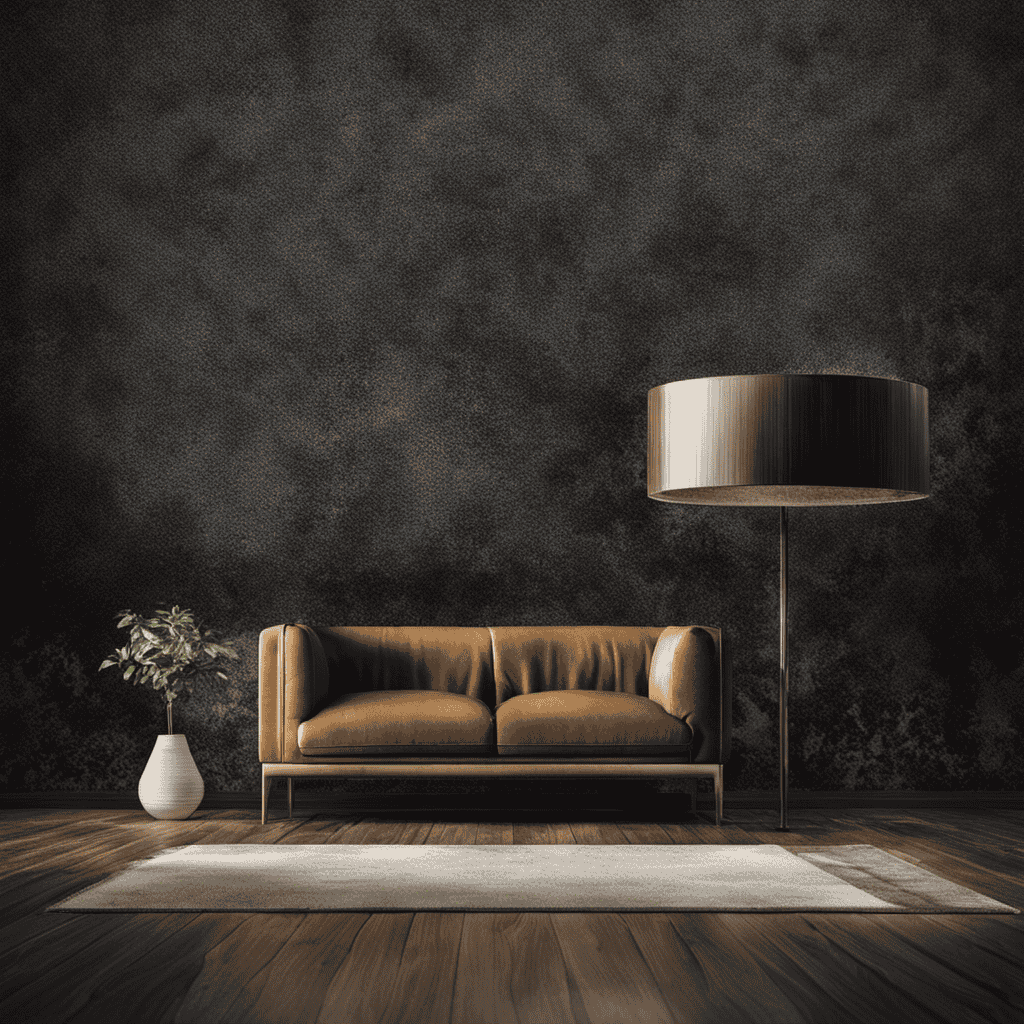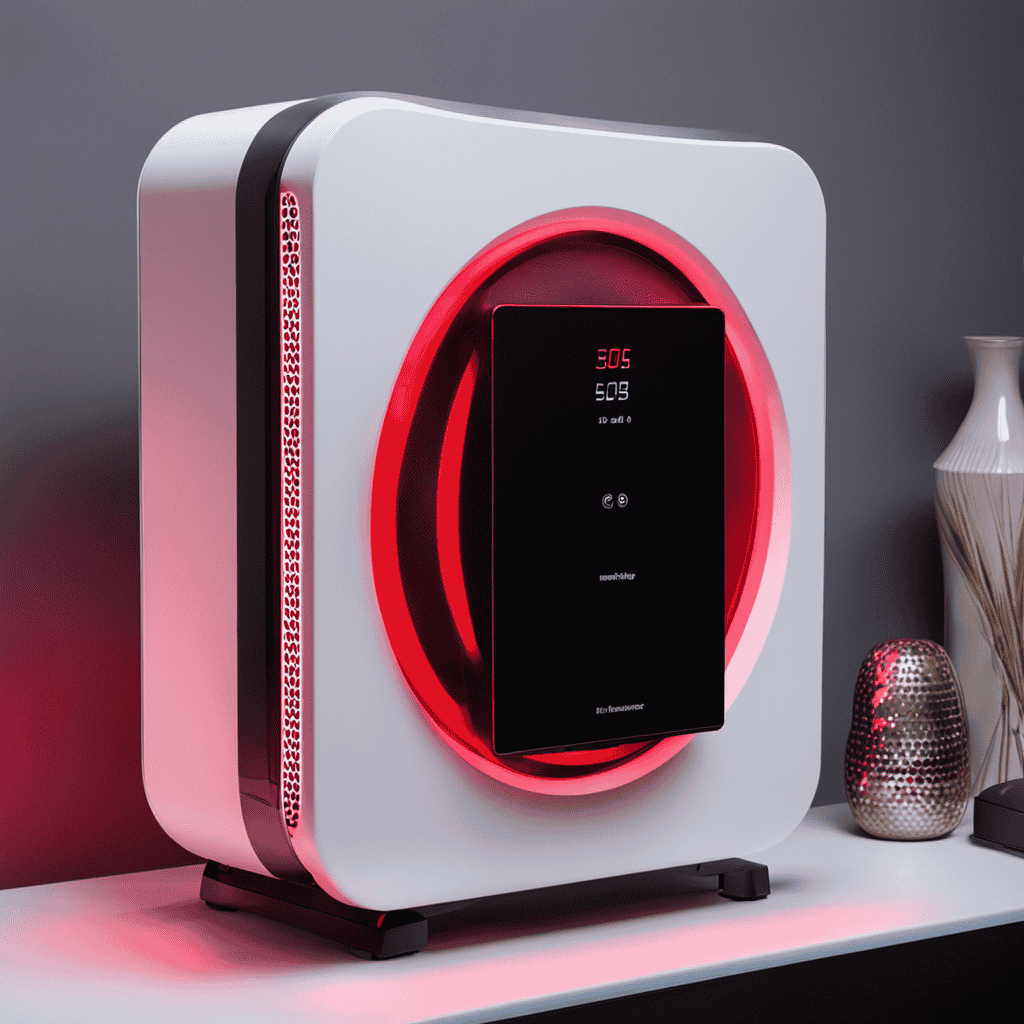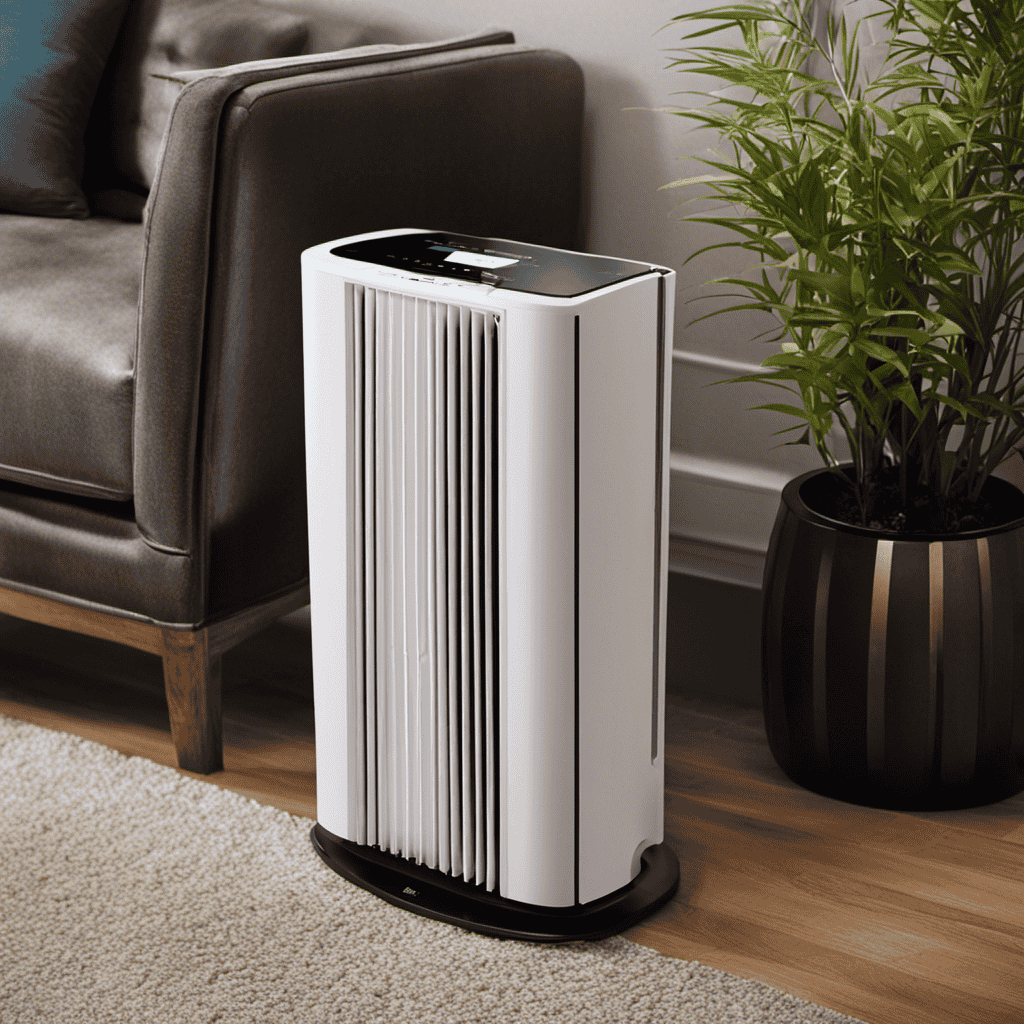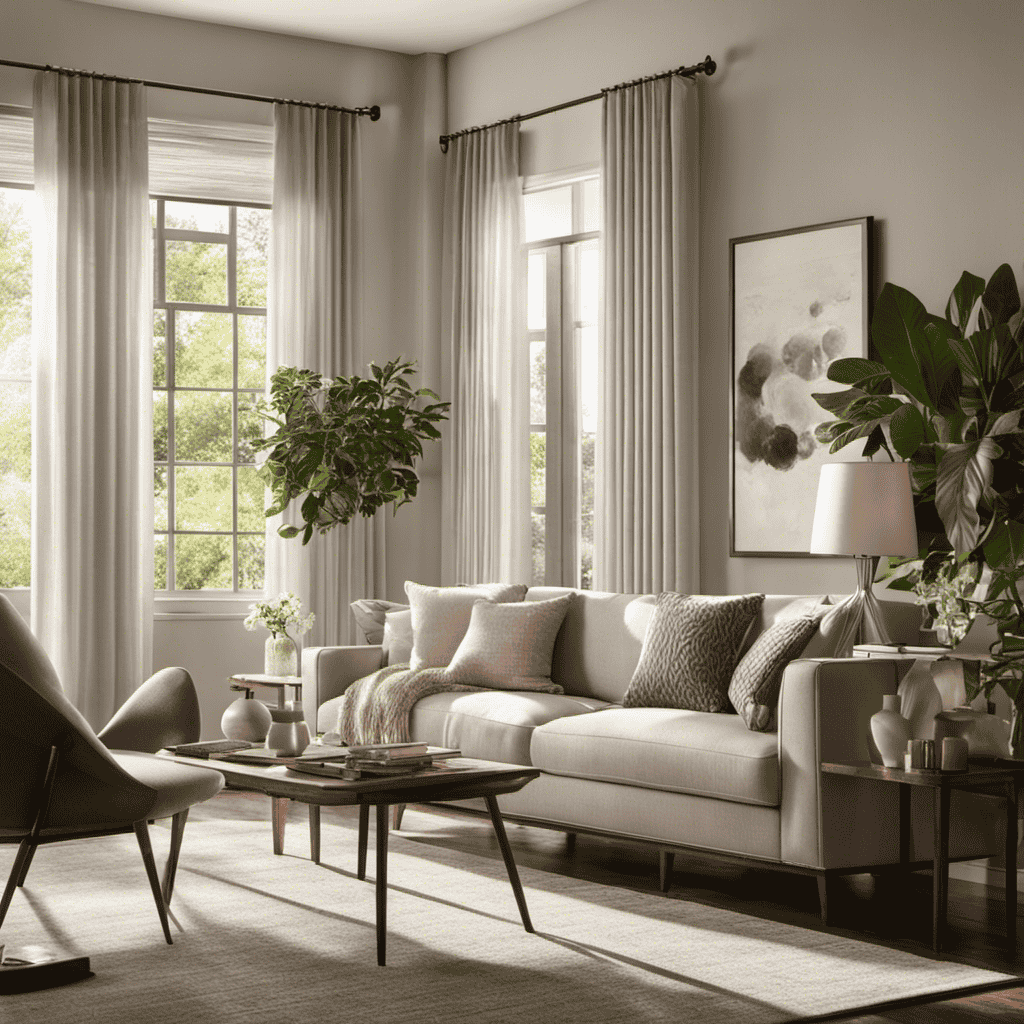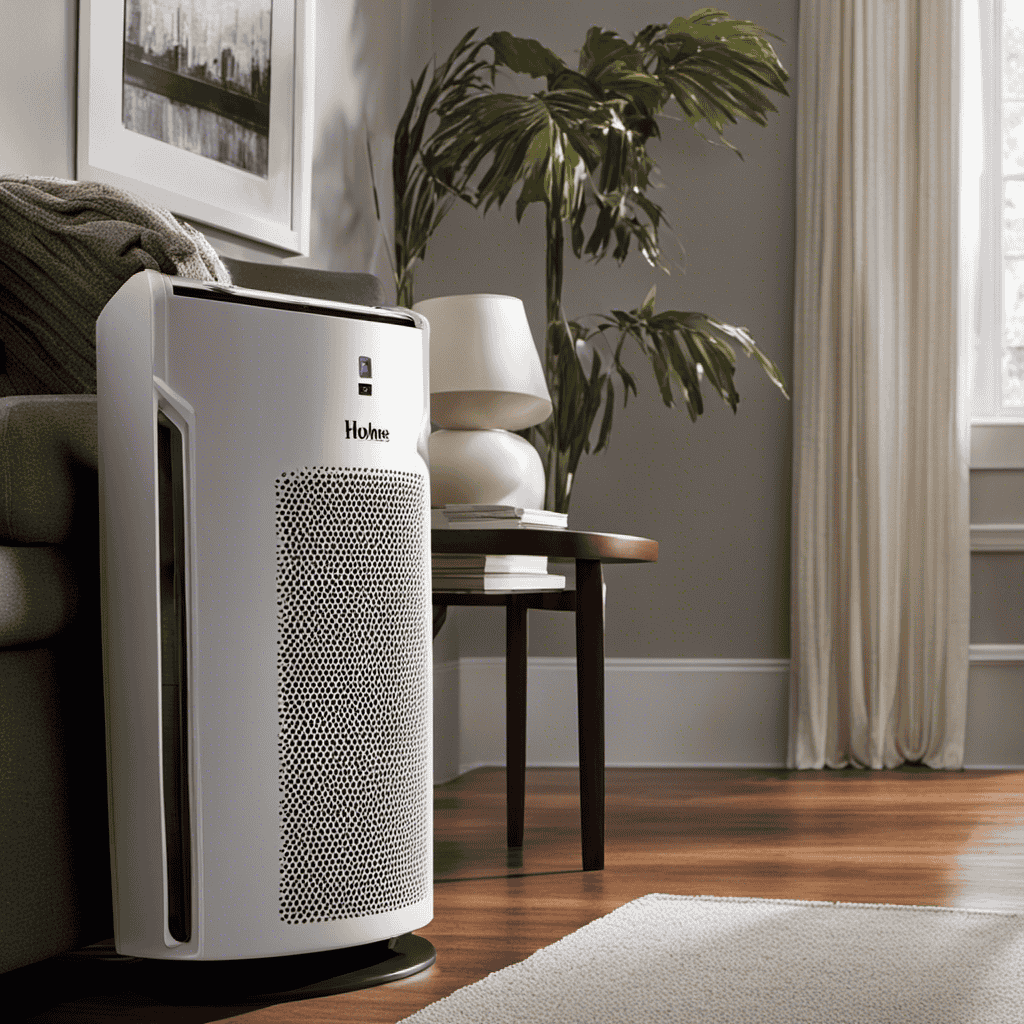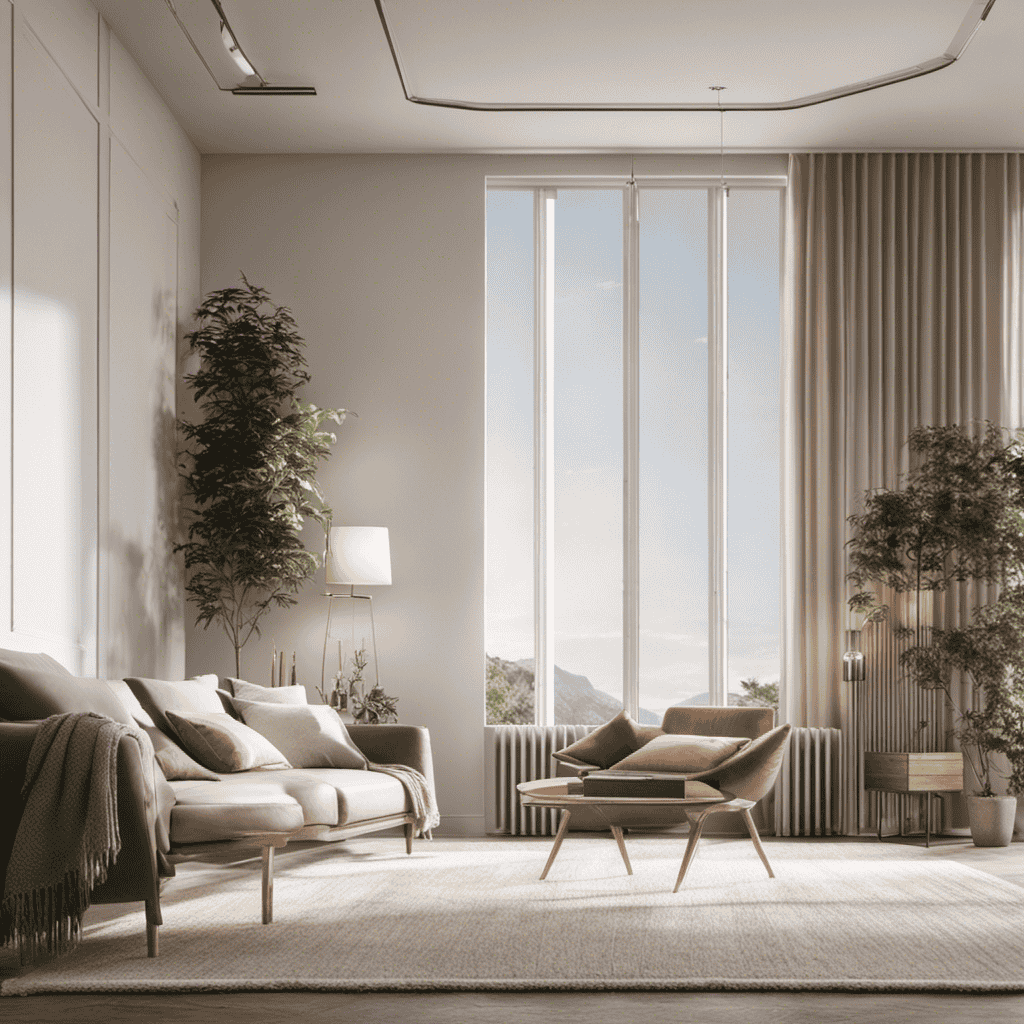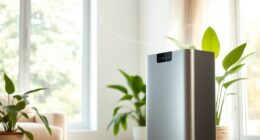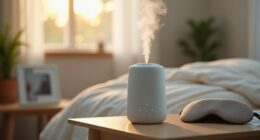I understand your thoughts on this: replacing the filter in your air purifier may not appear significant. However, I must emphasize that failing to replace the filter can lead to detrimental effects on the quality of your indoor air.
In this article, we’ll explore the detrimental effects of not changing your air purifier filter. From decreased air quality and reduced efficiency to increased allergens and potential health risks, you’ll discover why regular filter maintenance is crucial for a clean and healthy home environment.
Key Takeaways
- Regularly changing the air purifier filter is crucial for maintaining good indoor air quality.
- Neglected filter maintenance can lead to decreased air quality, respiratory issues, and allergies.
- Dirty filters allow allergens and pollutants to accumulate in the living space, worsening air quality and respiratory problems.
- Regular filter maintenance promotes better respiratory health, reduces allergens and respiratory infections, and helps prevent chronic respiratory diseases.
Decreased Air Quality
When an air purifier filter isn’t changed, the air quality decreases. Regularly changing the filter is crucial for maintaining good indoor air quality and reaping the health benefits of an air purifier.
The filter plays a vital role in trapping harmful particles such as dust, pollen, pet dander, and mold spores, preventing them from circulating in the air. Over time, these particles accumulate and clog the filter, reducing its efficiency. As a result, the air purifier is no longer able to effectively remove pollutants, leading to decreased air quality.
To ensure optimal performance, it is recommended to follow some maintenance tips. These include checking the filter regularly, replacing it as recommended by the manufacturer, and keeping the air purifier clean and free from dust and debris.
Reduced Efficiency
To maintain optimal efficiency, you should regularly replace the filter in your air purifier. When a filter becomes clogged with dirt, dust, and other particles, it can severely impact the performance of the purifier. Not only will it struggle to effectively clean the air, but it may also consume more energy, leading to increased electricity costs. Prolonged exposure to pollutants in the air due to a clogged filter can have negative health effects, such as respiratory issues and allergies. It is essential to prioritize the regular replacement of your air purifier filter to ensure that it continues to operate at its highest efficiency, providing you with clean and healthy air. Neglecting this simple maintenance task can result in reduced efficiency and potential health risks.
| Negative Effects of Clogged Filters | Emotional Response |
|---|---|
| Decreased air purification | Frustration |
| Increased energy consumption | Disappointment |
| Health risks | Concern |
Increased Allergens
Regularly replacing the filter in your air purifier is crucial in order to prevent an increase in allergens in your home. When the filter is not changed, it becomes clogged with dust, dirt, and other particles that it has captured over time. This leads to the following consequences:
-
Indoor pollution levels rise: A dirty filter cannot effectively trap and remove pollutants from the air, allowing them to circulate freely in your home. This can result in a decline in indoor air quality, leading to respiratory problems and other health issues.
-
Allergens accumulate: Without a clean filter, allergens such as pollen, pet dander, and mold spores accumulate in your living space. This can trigger allergies and asthma symptoms, causing discomfort and distress.
-
Decreased efficiency: A clogged filter restricts airflow and makes your air purifier work harder to clean the air. This not only reduces its efficiency but also increases energy consumption, resulting in higher utility bills.
-
Shortened lifespan: When a filter is not changed regularly, it puts additional strain on the air purifier’s motor and other components. This can lead to premature wear and tear, shortening the lifespan of your device.
To maintain a healthy indoor environment and minimize respiratory problems, make sure to replace your air purifier’s filter according to the manufacturer’s instructions.
Accumulation of Dust and Debris
The accumulation of dust and debris in your home can worsen if the filter isn’t replaced regularly. Air purifiers are designed to remove airborne pollutants and improve indoor air quality. However, if the filter becomes clogged and dirty, it becomes less effective in capturing these particles. As a result, dust and debris can build up in your home, leading to various issues such as allergies, respiratory problems, and decreased air quality. Regular maintenance is essential to keep your air purifier functioning optimally. Here are some maintenance tips to ensure your air purifier works efficiently:
| Maintenance Tips | |||
|---|---|---|---|
| Check the filter regularly | Replace the filter as recommended by the manufacturer | Clean the pre-filter if necessary | Keep the area around the air purifier clean and free from dust |
Overworked Air Purifier
When an air purifier is overworked, it can lead to decreased air quality and high energy consumption. This happens because the air purifier is unable to effectively filter out pollutants and particles from the air, resulting in lower air quality.
Additionally, the constant strain on the air purifier’s motor and filtration system can lead to increased energy usage, which can be costly and environmentally unsustainable.
It is important to regularly maintain and replace air purifier filters to prevent these issues and ensure optimal performance.
Decreased Air Quality
If an air purifier filter isn’t changed, it can cause decreased air quality. When the filter becomes dirty and clogged, it is less effective at capturing pollutants and allergens in the air. This can lead to a buildup of harmful particles, which can have negative effects on our health and well-being.
Here are four consequences that can arise from neglecting to change the air purifier filter:
-
Increased respiratory problems: Dirty filters allow allergens and pollutants to circulate freely, aggravating respiratory conditions like asthma and allergies.
-
Decreased productivity: Poor air quality can lead to fatigue, headaches, and difficulty concentrating, ultimately reducing productivity and performance.
-
Worsened indoor air quality: Without a clean filter, the air purifier cannot effectively remove pollutants, resulting in a buildup of dust, pet dander, and other airborne particles.
-
Potential health risks: Breathing in contaminated air can contribute to the development or worsening of respiratory illnesses and other health issues.
Taking the time to regularly change the air purifier filter is essential for ensuring clean and healthy indoor air, promoting better respiratory health and productivity.
High Energy Consumption
To reduce high energy consumption, you should consider using an air purifier with an energy-efficient mode. This can help mitigate increased electricity bills and minimize the environmental impact.
Air purifiers are known for consuming a significant amount of electricity, especially if they are running continuously or at high speeds. By using an energy-efficient mode, the purifier can optimize its performance while consuming less energy. This not only reduces your electricity bills but also contributes to a greener environment by reducing carbon emissions.
Additionally, some air purifiers have smart sensors that automatically adjust their speed based on the air quality, further optimizing energy consumption.
Investing in an energy-efficient air purifier is a wise choice that can have a positive impact on both your wallet and the planet.
Potential Health Risks
Neglecting to change an air purifier filter can lead to potential health risks. It’s important to understand the consequences of not maintaining a clean filter, as the long-term effects can be detrimental to our well-being.
Here are four reasons why neglecting your air purifier filter can have serious health implications:
-
Reduced air quality: A dirty filter cannot effectively trap pollutants, allowing them to circulate in the air we breathe. This can lead to respiratory problems and worsen existing conditions like asthma or allergies.
-
Increased allergens: A clogged filter can become a breeding ground for allergens like dust mites and mold spores. These can trigger allergic reactions and cause discomfort.
-
Respiratory infections: When the filter is not changed regularly, harmful bacteria and viruses can accumulate. Breathing in these pathogens can lead to respiratory infections and other illnesses.
-
Decreased lung function: Long-term exposure to poor air quality can impair lung function and contribute to the development of chronic respiratory diseases.
Taking care of your air purifier filter is crucial to ensure clean and healthy indoor air, safeguarding your well-being in the process.
Frequently Asked Questions
How Often Should an Air Purifier Filter Be Changed?
I replace my air purifier filter every 3-6 months to ensure optimal performance. Choosing the right filter depends on factors like the size of your room and the type of pollutants you want to remove.
Can I Clean and Reuse an Air Purifier Filter Instead of Replacing It?
I can clean and reuse an air purifier filter, but it may compromise its cleaning effectiveness and shorten its lifespan. It’s important to regularly replace the filter to ensure optimal performance and maintain clean air quality.
Are There Any Signs or Indicators That Can Help Me Determine When It’s Time to Change the Air Purifier Filter?
When an air purifier filter isn’t changed, it can become dirty and clogged, reducing its effectiveness in removing airborne particles. Signs of a dirty filter include decreased airflow and a noticeable drop in air quality. Regularly changing the filter can prolong its lifespan.
Can Using an Air Purifier With a Dirty or Clogged Filter Cause Damage to the Appliance?
Using an air purifier with a dirty filter can seriously damage the appliance. It restricts airflow, reduces efficiency, and allows contaminants to circulate. Regular air purifier maintenance, including filter changes, is crucial for optimal performance and clean air.
Are There Any Alternative Methods to Improve Air Quality in a Space if I Can’t Change the Air Purifier Filter Regularly?
Alternative methods to improve air quality in a space, if I can’t change the air purifier filter regularly, include using indoor plants, maintaining proper ventilation, and keeping the space clean. However, the effectiveness of these methods should be assessed.
Conclusion
In conclusion, neglecting to change the air purifier filter can have dire consequences for your indoor air quality. The accumulation of dust and debris not only reduces the efficiency of the purifier but also increases the presence of allergens in your living space.
Over time, the air purifier becomes overworked, leading to potential health risks and a decline in its performance. As the saying goes, ‘A stitch in time saves nine,’ so it’s essential to stay proactive and ensure regular filter changes for a healthier and cleaner environment.
